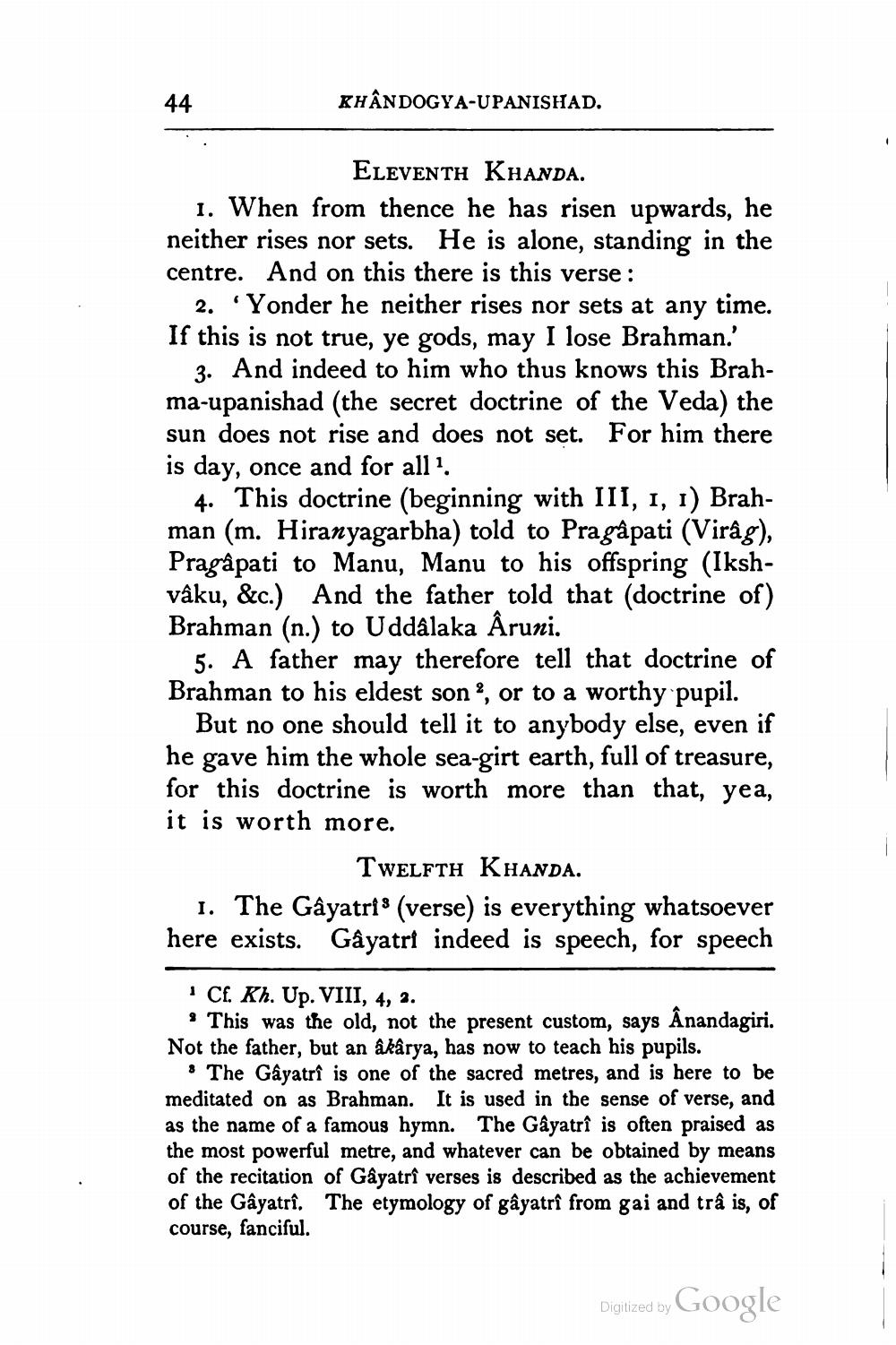________________
44
KHÂNDOGYA-UPANISHAD.
ELEVENTH KHANDA. 1. When from thence he has risen upwards, he neither rises nor sets. He is alone, standing in the centre. And on this there is this verse:
2. Yonder he neither rises nor sets at any time. If this is not true, ye gods, may I lose Brahman.
3. And indeed to him who thus knows this Brahma-upanishad (the secret doctrine of the Veda) the sun does not rise and does not set. For him there is day, once and for all 1.
4. This doctrine (beginning with III, 1, 1) Brahman (m. Hiranyagarbha) told to Pra gâpati (Virag), Pragâpati to Manu, Manu to his offspring (Ikshvâku, &c.) And the father told that (doctrine of) Brahman (n.) to Uddalaka Âruni.
5. A father may therefore tell that doctrine of Brahman to his eldest son, or to a worthy pupil.
But no one should tell it to anybody else, even if he gave him the whole sea-girt earth, full of treasure, for this doctrine is worth more than that, yea, it is worth more.
TWELFTH KHANDA. 1. The Gâyatri' (verse) is everything whatsoever here exists. Gayatri indeed is speech, for speech
· Cf. Kh. Up. VIII, 4, 2.
* This was the old, not the present custom, says Ânandagiri. Not the father, but an âkârya, has now to teach his pupils.
* The Gayatri is one of the sacred metres, and is here to be meditated on as Brahman. It is used in the sense of verse, and as the name of a famous hymn. The Gâyatri is often praised as the most powerful metre, and whatever can be obtained by means of the recitation of Gayatri verses is described as the achievement of the Gâyatrî. The etymology of gâyatri from gai and trâ is, of course, fanciful.
Digitized by Google




